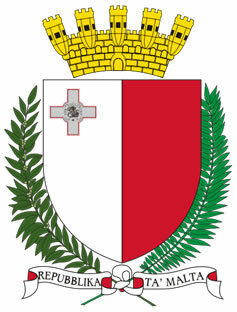Malta is an archipelago made up of five islands located in the Mediterranean Sea, on the European continent, between Italy and Tunisia (North Africa). Three of the five islands are inhabited: Malta, Comino and Gozo; the other two (Filfla and Cominotto) are uninhabited.
The island of Malta is the largest and most important, as it houses the city of Valletta, the national capital, in addition to having around 320 ancient monuments inside fortifications. The islands of Malta and Gozo are home to the oldest known human constructions, the Megalithic Temples, considered World Heritage Sites.

Malta's beauties attract many tourists
The country is a former British colony, whose independence was achieved on September 24, 1964. Malta is part of the British Commonwealth, an association formed by the United Kingdom and its former colonies.
The nation has great economic development, with tourism and the textile, naval, food and electronic industries being the basis of the national economy.
The population of Malta enjoys a good social standard. The country's Human Development Index (HDI) is very high: 0.815; the infant mortality rate is only 6 deaths per thousand live births; and about 95% of the population is literate.

Coat of Arms of Malta
Malta Data:
Territorial extension: 316 km².
Location: Europe.
Capital: Valletta.
Climate: Mediterranean.
Government: Parliamentary Republic.
Administrative division: None.
Languages: Maltese and English (official), Italian.
Religion: Christianity 98.2% (Catholic 93.2%, other 5%), no religion and atheism 1.5%, other 0.3%.
Population: 408,712 inhabitants. (Men: 203,558; Women: 205,154).
Composition: Maltese 96%, English 2%, other 2%.
Demographic density: 1,293 inhabitants/km².
Average annual population growth rate: 0.3%.
Population residing in urban areas: 94.49%.
Population residing in rural areas: 5.51%.
Undernourished population: less than 5%.
Life expectancy at birth: 79.2 years.
Households with access to drinking water: 100%.
Households with access to a health network: 98%.
Human Development Index (HDI): 0.815.
Euro currency.
Gross Domestic Product (GDP): 7.4 billion dollars.
GDP per capita: $18,227.
External relations: World Bank, Commonwealth, IMF, WTO, UN, EU.
By Wagner de Cerqueira and Francisco
Graduated in Geography
Brazil School Team
countries - geography - Brazil School
